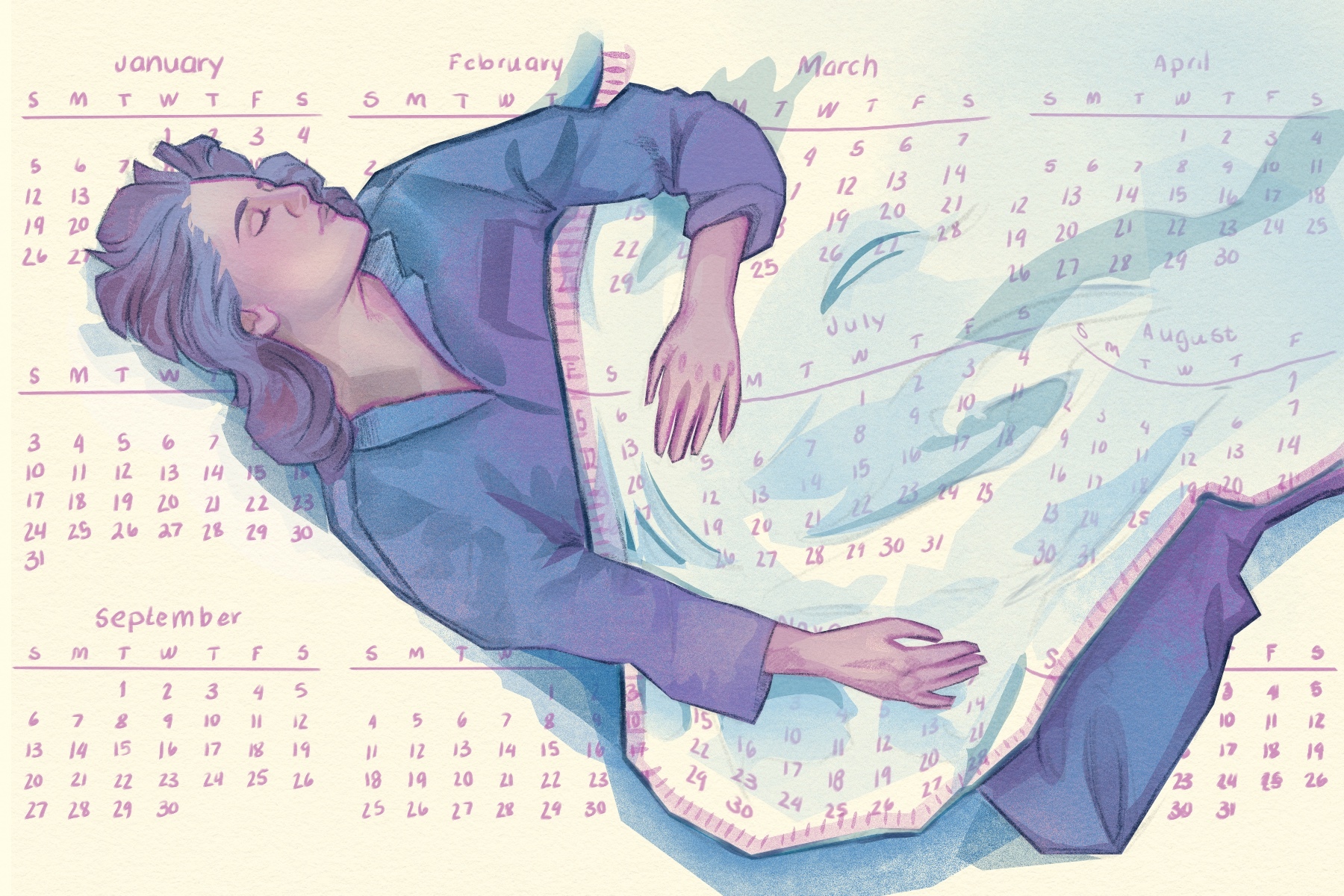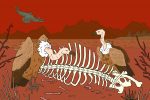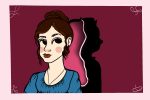Content Warning: Drug Abuse, Eating Disorders, Death
The novel “My Year Of Rest And Relaxation” by Ottessa Moshfegh offers an unconventional perspective on womanhood. For starters, there are a number of trigger warnings attached to the work that are worth considering before even picking up a copy. True to Moshfegh’s style of writing, the narrative feels nonsensical at times. Much of the writing comes from the brain of the main character, and feels like the culmination of her most intrusive thoughts. In that sense, describing the plot of this book to someone can be difficult, since it feels like so much is going on and nothing is going on at all.
The story’s main character seems both challenging to understand and entirely predictable. Throughout the novel, her character remains unnamed, which adds an additional layer of complexity to the narrative voice. In some ways, this may help to make the character everything to everyone. There are a few characters who contribute to the plot. Reva, the main character’s friend, is someone whose friendship she desires despite simultaneously disliking her. Trevor, a toxic lover, fits the role of the man she desires to the point of self-degradation. There is also Dr. Tuttle, her unhinged and random psychiatrist. Oddly enough, this psychiatrist continually prescribes large doses of sleeping pills to the protagonist. Ping Xi, an artist who reappears throughout the plot, plays a minor part in the main character’s sleep state. Furthermore, her mother and father are tangentially influential to the trajectory of her life, although the plot does not fully specify how.
After digesting the first few pages, readers quickly observe the main character’s obsession with sleeping and avoiding her life. With a pattern of self-sabotage and disregard for her own well-being, she details the way she gradually lost her job. While working at an art gallery, she leaves a final statement that quickly jumpstarts her joblessness. Right before she leaves for good, the protagonist decides to defecate directly on an art piece that belongs to Ping Xi.
The main character’s incessant need to sleep is brought on by her use of sleeping pills. Without any real medical reason for taking them (she isn’t an insomniac) it becomes apparent early on that she has an issue. Even though she has no problems with sleeping at first, she goes on to describe several parts of her past that make it difficult for her to do so. She is able to meet with Dr. Tuttle, who dangerously pumps out pill prescriptions and breeds her pill addiction. This ultimately mimics her own mother’s downfall. The protagonist’s collection of sleeping pills and generous trust fund allow her the luxury of sleeping her life away. Whenever she is awake, she brings up elements of her past, which helps the reader understand the rationale behind her behavior. They learn that she is using drugs and sleep to run away from her problems and reality.
When the main character dives into her past, she includes details of her home life when she was younger. She describes her life as an only child with parents who were emotionally stagnant and cold. Her father feels soulless, as his emotional dormancy prevents any actual relationship from forming between them. On the other hand, her mother is cruel to her in a way that forces her to perform in her waking life. The relationship between both parents is nonexistent, leading everyone in the family to be miserable. Inherently, this trait gets passed down to the main character and, as fate would have it, her parents both die ugly deaths — her father from cancer and her mother from a pill overdose. Of course, this does not help the main character, as she feels her world has been shattered.
The way in which the protagonist treats her friend, Reva, is malicious and emotionally abusive. Often, it feels like she is mimicking the behavior of her mother, a figure who constantly put her down. For most of the novel, readers will live in her head; few conversations exist outside of it. When she shares her thoughts during interactions with Reva, the reader sees how cruelly she views her. In some instances, she becomes snappy and ill-tempered in her responses. One of the biggest reasons she disrespects Reva is because of her constant, shallow need to be beautiful — an issue that manifests itself through her bulimia. The protagonist’s awareness of her friend’s eating disorder causes her to feel disgust toward Reva, realizing she is insecure and wrongly striving to be perfect. In contrast, the main character has adopted the mindset of simultaneously not caring about being beautiful, while having a total awareness of her own attractiveness.
Despite her “I don’t care” mentality, there are rare moments where she describes her past on-and-off relationship with Trevor. It becomes clear that he did not treat her well, and that it bordered on abuse. Many times, he said mean things to her and put her down emotionally. Though the protagonist loved him and longed for them to be together, it was as if she loved him to the point of self-destruction.
Moshfegh cleverly captures the setting through specific time stamps. Set between the years 2000 and 2001, there are bites of history interspersed throughout. In the new year of 2001, she includes a short sound bite of President George Bush being sworn into office. The protagonist’s constant use of a DVR machine and video tapes — which would be considered outdated now — also date the work. Mentions of 9/11 are also interspersed throughout the narrative. Moshfegh paints imagery throughout the book that feels sometimes too grotesque to witness. There are descriptions of the main character’s indoor living situation, human anatomy and other keen details that are unnervingly evocative. Her innermost thoughts feel intrusive to witness, but relatable all the same.
Moshfegh’s “My Year Of Rest And Relaxation” resembles word art, and her style of writing is accessible to many readers. Its figurative language and intimate moments are illustrated in painstaking detail. This novel is worth a try, and its brutally honest depiction of the main character is sufficient reason for readers to pick it up. Currently, a film adaptation of the novel may be in the works. Margot Robbie and her film production company bought the rights to the film in 2018 — so fans may see this on the big screen soon.
True to the theme of self-destruction, the main character winds up alone in her life. Her pill-popping and sleep addiction manage to drive away Reva, the last person to remain close to her. The novel ends in a way that resembles the middle of the day. It emits a sense of nothingness and despair, evoking the harsh reality that life really does have to go on after all. Though the protagonist desires death all throughout Moshfegh’s work, the book ends on the tragic note that she must live on.

















